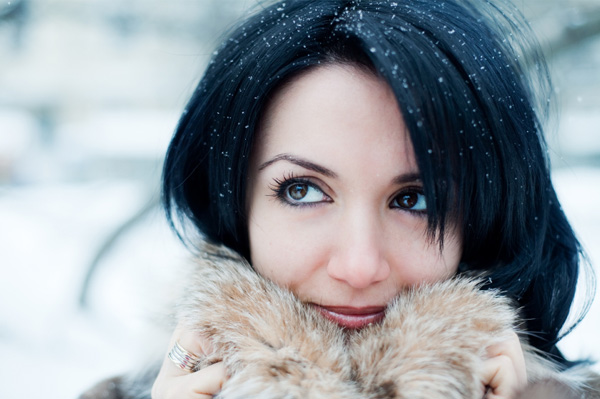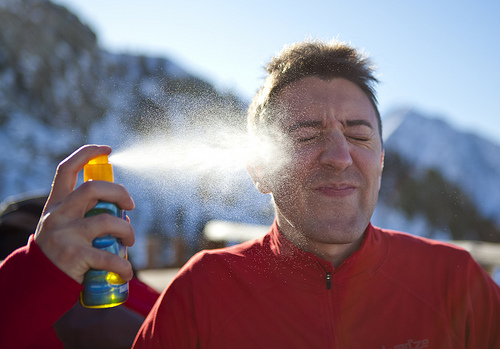
Winter Skin Care Tips
There's a huge misconception that during the fall and winter seasons sunscreen isn't needed as much, but Dr. Susan Van Dyke from Laser and Skin has the research and over more than 25 years of experience to suggest otherwise.
We all know how harsh Arizona summers can be. Our skin takes a beating from the sun and it doesn't take very long to get a sunburn, nor does it take a long time to feel the effects of triple-digit temperatures and constant sunlight that fill most of those summer days. We've been programmed to put it loads of sunscreen on to protect our skin. But during winter and significantly cooler temperatures, how many of us remember to do the same?
At Laser and Skin, Dr. Van Dyke's primary work revolves around working withhelping people that have already caused damage to their skin. She's seen firsthand what can happen if people don't change their habits and make conscious decisions to protect their skin. Her enthusiasm and hope is linked to the before--
Just because the sun is less as intense as it is during summer months isn't enough reason to stop wearing sunscreen. Effects of the sun can still cause damage to your skin, mainly because the sun constantly produces ultraviolet radiation (UV) that's damaging to the skin, regardless of temperature.
One of the things Dr. Van Dyke suggests are antioxidants. "[They] It haves the ability to neutralize damaging molecules in the body that are produced by toxins, pollution, stress, and dangerous sunrays," says Van Dyke says. So not only do they play a huge role in our overall health, they're great for our skin, especially antioxidant-rich products.
During the winter, our skin undergoes a major transformation that usually results in dry skin. An easy way to replenish your skin of all it'sits necessary nutrients, is to use a proper moisturizer that you can apply on in the morning before sunscreen.

Dr. Van Dyke Top Skincare Tips:
1. SPF-30: Apply this to typical places such as arms, shoulders, neck and face. In addition to other less conventional areas like the, under eye areas and eye brow. It's recommended that we reapply throughout the day (i.e. every two hours) and also use a lip balm that has SPF in it because others can dry out during cooler weather.
2. Short use of warm water: Though it feels great to use hot water on our face, it is best to use warm water. Stay away from scrubbing your face with wash clothes and brushes, and use either your hands or a gentle ultrasonic brush great for deep cleansing. Through vibration, rather than rotation, an ultrasonic brushit's is a gentley and quick alternative that usually runs anywhere between $100 and $250 dollars.
3. Mild cleansers: As we wash our face and use cleansers, we are stripping natural oils that are essential to precious moisture that prevents our face from drying out. Mild cleansers, help with this problem because they are strong enough to remove dirt from our pores while also replenishing our skin.
4. Moisturizer creams: These are a great thing to use, and are much better than lotions in the winter. Apply immediately after cleansing and when your face is still damp to lock in all moisture.
Developments in skin protection bursts the bubble for many of you that commonly head to tanning salons to get in your weekly, G.T.L (gym, tanning, and laundry). "Tanning is an absolute no-no. It's doesn't do anything for your skin beside change its color and cause damage," says Van Dyke says. Unfortunately, tanning is something that is becoming more prominent in our culture. However, she does recommend that if a tan or need for darker skin is a must-have, bronzers and sprays are a much healthier alternative.
Skin protection and wearing sunscreen is also linked to aging. Initially, there are two type of aging, intrinsic and extrinsic. Intrinsic is purely chronological meaning that it's a natural part of time and life. Extrinsic aging falls in our hands, though, and is a result of our habits. Factors such as smoking, poor nutrition, sleep deprivation, and exposure to the sun can cause premature aging.
In America, what is considered beautiful has always been dictated by pop culture and, in some cases, the media. Our ideas of beauty form from all the things we see. Tanning salons, ads, and commercials play into this notion; nevertheless, Dr. Van Dyke offer a tip of simple advice: "Embrace your paleness."
It's much better to have healthy beautiful skin that is going to last rather than join and become part of the trend. The things you do in your youth have a funny way of coming back with vengeance during adulthood. "Kids now are being told to use sunscreen at such early ages, and that's a great thing. The next generation will be more beautiful and have much healthier skin for longer," says Dr. Van Dyke says.